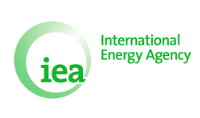International Energy Agency
|
International Energy Agency (IEA)
|
|
|---|---|

|
|

IEA member states
|
|
| Secretariat | Paris, France |
| Membership | 29 states |
| Leaders | |
|
• Executive Director
|
Fatih Birol |
|
• Deputy Executive Director
|
Paul Simons |
| Establishment | 1974 |
|
Website
www |
|
The International Energy Agency (IEA) (French: Agence internationale de l'énergie) is a Paris-based autonomous intergovernmental organization established in the framework of the Organisation for Economic Co-operation and Development (OECD) in 1974 in the wake of the 1973 oil crisis. The IEA was initially dedicated to responding to physical disruptions in the supply of oil, as well as serving as an information source on statistics about the international oil market and other energy sectors.
The IEA acts as a policy adviser to its member states, but also works with non-member countries, especially China, India, and Russia. The Agency's mandate has broadened to focus on the "3Es" of effectual energy policy: energy security, economic development, and environmental protection. The latter has focused on mitigating climate change. The IEA has a broad role in promoting alternate energy sources (including renewable energy), rational energy policies, and multinational energy technology co-operation.
IEA member countries are required to maintain total oil stock levels equivalent to at least 90 days of the previous year's net imports. At the end of July 2009, IEA member countries held a combined stockpile of almost 4.3 billion barrels (680,000,000 m3) of oil.
On 1 September 2015, Fatih Birol took office as the new Executive Director, succeeding in this position former Dutch Minister of Economic Affairs, Maria van der Hoeven.
The IEA was established to meet the industrial countries' energy organization needs in the wake of the 1973–1974 oil crisis. Although the OECD had structures such as the Council, the Executive Committee, the Oil Committee, and the Energy Committee that could potentially deal with energy questions, it could not respond effectively to the crisis. The OECD had adopted the Oil Apportionment Decision [C(72)201(Final)], laying out procedures to be carried out in the event of an oil supply emergency in Europe, but these procedures were not implemented during the crisis. In addition, the OECD had adopted recommendations on oil stockpiling in Europe, but due to their limited scope, these measures could have only a limited role in an oil supply emergency.
...
Wikipedia
